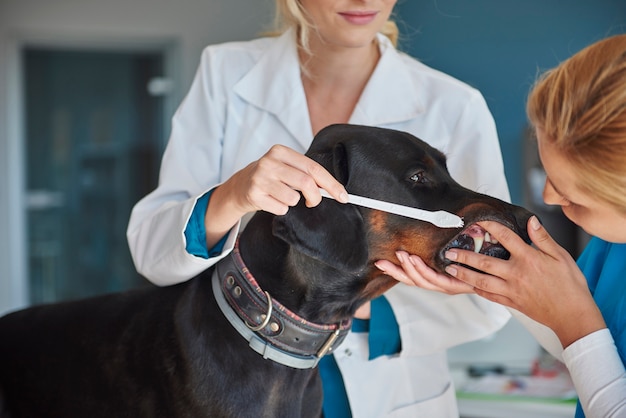Pet Dental Cleaning: Why It’s Essential for Long-Term Health


Pet Dental Cleaning: Why It’s Essential for Long-Term Health
As a pet owner in Jacksonville, you want your dog or cat to enjoy a happy, healthy life by your side for as many years as possible. You likely already know that regular exercise, nutritious food, and routine veterinary visits are vital, but did you know your pet’s oral hygiene is just as important? Dental disease is one of the most common (and often overlooked) health issues in pets, quietly affecting their comfort, energy, and even vital organs. At Birch Island Veterinary Clinic, located at 14485 Philips Highway, Jacksonville, FL 32256, our veterinary team is passionate about educating pet owners about the true impact of dental health. In this blog, we will explore how professional pet dental cleaning, including advanced dental cleaning and hygiene, protects your pet’s long-term wellbeing, how to recognize the signs of dental trouble, and what you can do at home between visits. Whether you are searching for a dental vet near me, or need guidance on maintaining your pet’s smile in Jacksonville and surrounding communities, you are in the right place. Read on to learn why pet dental care is one of the best gifts you can give your furry friend.
How to Recognize the Signs Your Pet Needs Dental Cleaning
Many pet owners are surprised to learn that dental disease can begin silently, often with very subtle changes. Cats and dogs rarely complain, so early signs are easy to miss until the problem has advanced. Common symptoms that may indicate your pet needs a dental cleaning include persistent bad breath that does not improve after brushing, visible brown or yellow buildup (tartar) on the teeth, and red, swollen, or bleeding gums. You might also notice your pet dropping food, chewing on one side of the mouth, pawing at the face, or showing reluctance to play with chew toys. In severe cases, pets can lose weight, become irritable, or even develop swelling under the eyes or along the jawline. These symptoms often mean dental disease is already causing discomfort or infection.
Some pet owners in Jacksonville report that their dogs or cats suddenly prefer soft food or seem less excited at mealtime. Others notice that their pet’s coat appears less shiny, which can be related to oral pain making grooming difficult. If you notice any of these issues, it is important to schedule an appointment for a dental evaluation with your local veterinary team. Finding a quality vet near me who can assess your pet’s oral health early can make a tremendous difference in treatment outcomes.
Understanding the Causes: Why Dental Disease Happens in Pets
Dental disease in pets, especially dogs and cats, is primarily caused by the accumulation of plaque and tartar on the teeth. Plaque is a sticky film made up of bacteria and food particles that forms throughout the day. If not regularly removed by brushing or professional dental cleaning, plaque hardens into tartar, which clings tightly to the surface of the teeth and under the gumline. This creates an ideal environment for bacteria to thrive, leading to inflammation (gingivitis), infection, and eventually, the destruction of tissues that support the teeth (periodontal disease).
Several factors contribute to how quickly dental disease develops in pets. Breed plays a role, as smaller dogs and certain cat breeds are more prone to crowded teeth and tartar buildup. Age is another factor, since dental disease risk increases as pets get older. Diet, chewing habits, and genetics can also influence oral health. In Jacksonville’s warm, humid climate, bacteria and plaque can flourish even faster, making professional dog teeth cleaning in Jacksonville especially important for maintaining your pet’s health. Additionally, because dental disease often progresses silently, many pets have significant oral health issues before any signs are obvious to their owners.
The Importance of Professional Pet Dental Cleaning in Jacksonville
Professional pet dental cleaning, performed by an experienced veterinary team, is essential for preventing, managing, and even reversing dental disease. While at-home brushing is helpful, only a thorough veterinary dental cleaning can remove hardened tartar, especially below the gumline where most problems begin. During a professional dog teeth cleaning in Jacksonville, your pet is placed under safe anesthesia for comfort and safety. This allows the veterinary professionals to carefully examine each tooth, use specialized tools to clean away plaque and tartar, and assess the gums for early signs of disease.
The process involves scaling the teeth both above and below the gumline, polishing the teeth to remove microscopic scratches that could harbor bacteria, and evaluating for any loose, broken, or infected teeth. In some cases, digital dental radiographs are recommended to check for hidden problems beneath the surface. If advanced disease or painful teeth are found, your veterinarian may discuss additional treatments such as pet tooth extractions or dental repair.
The benefits of regular dental cleaning and hygiene extend far beyond a fresh-smelling mouth. Removing tartar and bacteria helps prevent the spread of infection to the heart, liver, and kidneys, which can occur if dental disease is left untreated. Professional dental care is a critical part of a wellness plan, supporting your pet’s long-term vitality and comfort. For those searching for “pet dental cleaning near me” or “dental vet near me,” choosing an established clinic in Jacksonville ensures your pet receives the highest standard of care tailored to local needs.
What to Expect During a Professional Dental Cleaning
Pet owners often have questions about what happens during a professional dental cleaning. The veterinary process begins with a complete physical examination and pre-anesthetic bloodwork to ensure your pet is healthy enough for anesthesia. The dental procedure itself includes careful monitoring of your pet’s vital signs throughout for maximum safety. The veterinary team will clean, scale, and polish each tooth, check for pockets of infection, and may take digital radiographs as needed. If any teeth need extraction or repair, your veterinarian will discuss these options with you in advance.
After the procedure, your pet will be monitored as they wake up from anesthesia. Most pets recover quickly and are able to return home the same day. Your veterinary team will provide detailed instructions for at-home care, including when to resume feeding, how to keep the mouth clean, and what signs to watch for during recovery. Follow-up care is important for maintaining results and keeping dental disease at bay.
Prevention and Home Care: What Pet Owners Can Do
While professional cleanings are key, the best way to protect your pet’s teeth is through consistent at-home care. Brushing your pet’s teeth several times a week using pet-safe toothpaste is the gold standard for removing daily plaque. Starting when your pet is young makes the process easier, but even adult pets can learn to tolerate gentle brushing with patience and positive reinforcement.
There are also dental diets, chews, and treats that can help reduce plaque buildup. Your veterinarian can recommend products that are proven to support oral health. Providing safe items for your pet to chew, such as approved dental toys or treats, encourages natural cleaning. Regular wellness visits allow your veterinary team to monitor your pet’s mouth for early signs of disease and recommend the right timing for professional cleanings. For Jacksonville pet owners, especially those dealing with the region’s humidity and year-round pests, staying proactive with dental care helps prevent more serious problems down the road.
Scheduling a wellness exam at least once a year is an excellent way to keep all aspects of your pet’s health—including dental—on track. During these visits, your veterinarian can demonstrate proper brushing techniques and check for any concerning changes that might require a closer look.
When to Seek Veterinary Care for Your Pet’s Dental Health
Knowing when to seek professional help is crucial for your pet’s comfort and long-term health. If you notice your dog or cat has persistent bad breath, visible tartar, red or bleeding gums, difficulty eating, or any swelling around the face or mouth, it is time to call your veterinarian. Sudden changes in behavior, such as irritability or hiding, can also signal dental pain.
Pets with existing health conditions, such as diabetes or heart disease, may be more susceptible to complications from dental disease. In these cases, prompt dental care is even more important. If you are searching for veterinary services near me or “pet dental cleaning in Jacksonville,” trust a local veterinary team with experience and advanced dental capabilities. Birch Island Veterinary Clinic’s team is always ready to guide you through the process, from initial evaluation to follow-up care.
If you are ever unsure whether your pet’s symptoms warrant a visit, it is always safer to schedule an appointment. Early intervention can spare your pet unnecessary pain and prevent more complex health issues.
Conclusion: Give Your Pet the Gift of a Healthy Smile
Dental health is a cornerstone of your pet’s overall wellbeing, impacting not just their mouth but their energy, comfort, and even longevity. By recognizing the early signs of dental disease, staying proactive with home care, and partnering with a trusted veterinary team for professional dog teeth cleaning in Jacksonville, you can help your pet enjoy a vibrant, pain-free life. Birch Island Veterinary Clinic is committed to providing comprehensive dental care for pets in Jacksonville and surrounding communities, supporting you every step of the way.
If your dog or cat is due for a dental cleaning, or if you are searching for the best vet near me for quality dental care, our veterinarians invite you to schedule an appointment today. Call (904) 717-6840 or visit us at 14485 Philips Highway, Jacksonville, FL 32256 to learn more about our dental cleaning and hygiene and other veterinary services near me. Your pet’s healthiest years are just a dental checkup away—let us help you ensure their smile lasts a lifetime.
This blog is for educational purposes only and does not substitute for professional veterinary advice. If you have concerns about your pet’s dental health, please contact your veterinarian directly.



















